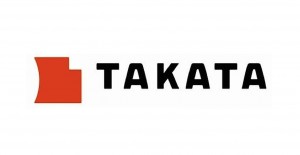
Takata's most recent recall of 2.7 million airbags revealed that the replacement inflators may be defective too.
Is the automotive world ready for a repeat of the Takata recall? Perhaps it should be.
Recent recalls on now-bankrupt Takata airbag-equipped vehicles has revealed a startling possibility: the repaired vehicles may not actually be fixed and could be recalled again. In the U.S. alone, that means 60 million units.
When Takata offered up a solution to the problem in 2015, U.S. regulators said the company had just four years to make sure that it worked. The supplier added a drying agent to combat moisture that can set off the ammonium nitrate compound in an inflator.
If the airbag inflators fail or are deemed unsafe, the replacements will need to replaced. According to Reuters, some industry consultants, explosives experts and former employees question whether the workaround guarantees safety over the long-term.
(Another 2.7 million Takata airbags recalled. To find out why, Click Here.)
“Absent proof that the other desiccated inflators are safe, they will also be subject to recall,” the U.S. National Highway Traffic Safety Administration (NHTSA) said in a statement last week. The agency declined to comment on the risk that additional inflators may be subject to recall, Reuters reported.
Last week, NHTSA revealed that testing on the Takata replacement inflators revealed that 2.7 million were defected and the agency issued a recall. The testing showed it was possible that moisture can still get into the inflators.
Takata officials said they produced 100 million replacements using drying agents to control the moisture issue. The 2.7 million vehicles recalled used calcium sulfate; however, the remainder used zeolite.
Now the real question: who is going to foot the bill for the next round of recalls? Likely the automakers now that Takata is essentially out of business courtesy of bankruptcy.
(Click Here for more about Takata’s bankruptcy filings.)
“The automakers… and Takata – they all know that this is a future issue,” said Scott Upham, chief executive at Valient Market Research, told Reuters. “But I think everybody is concerned about the near-term issues, and the financial arrangements of the bankruptcy.”
Automakers have already spent $10 billion collectively for the initial recall. In all, 20 automakers are using the Takata replacements for the initial round of repairs. However, Honda Motor Co., Toyota Motor Corp. and Nissan Motor Co. all plan to stop using Takata inflators for new contracts for future products.
“If NHTSA in the future raises issues about the safety (of desiccated inflators) we will of course comply with their orders,” Nissan’s chief sustainability officer Hitoshi Kawaguchi told Reuters. “At the moment, our focus is on getting replacement inflators to our customers.”
(Honda confirms 12th Takata airbag related death in the U.S. Click Here for the story.)
Upham predicts that the replacements will ultimately be recalled as well because the ammonium nitrate used to fire the inflators is just too volatile, even with the addition of zeolite. This is likely going to come out of the pockets of the automakers as what’s left of Takata won’t be able to afford it, he said.
